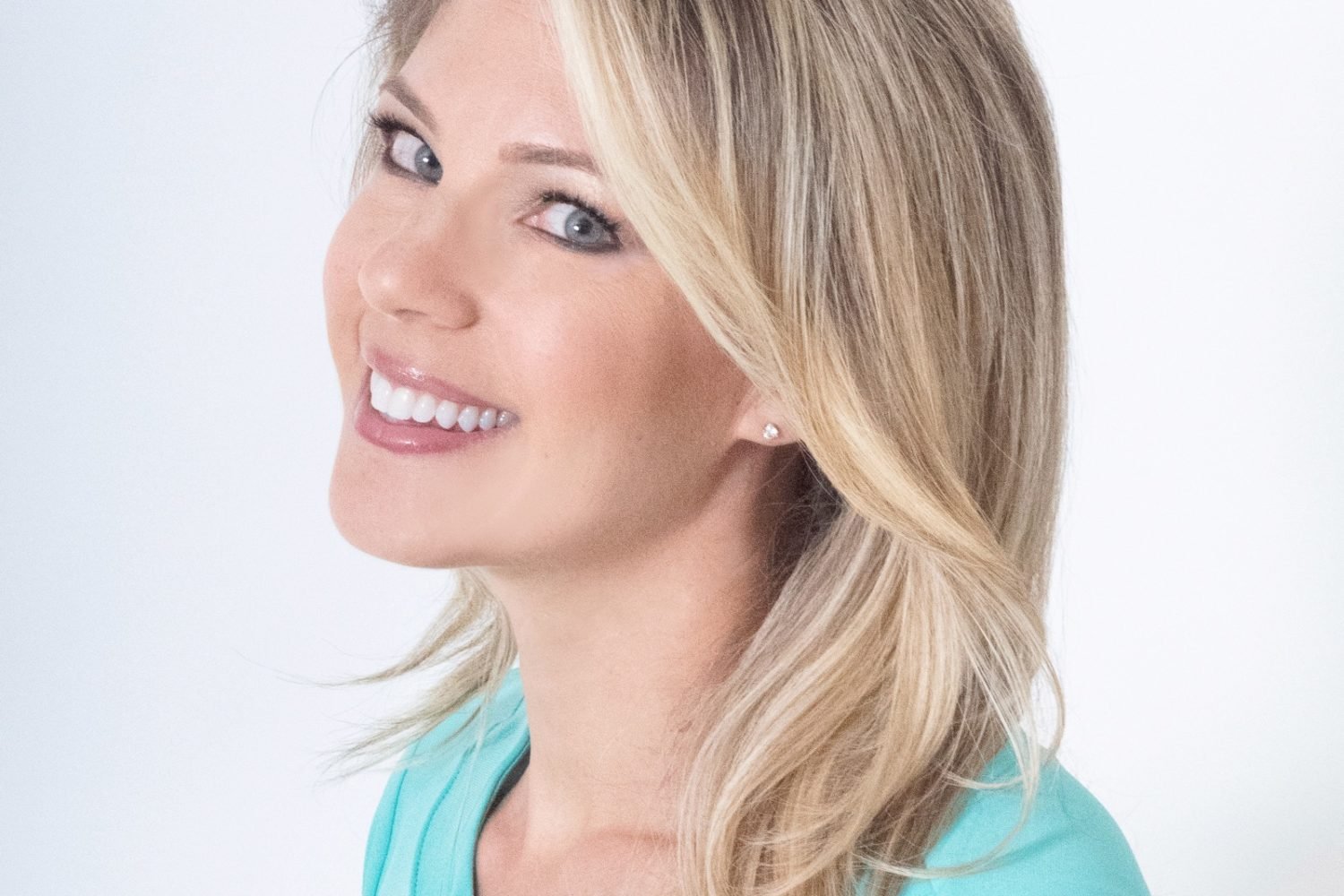“Yes We Can!”
If I composed a list of all the changes in my life after my motorcycle accident, there’d be very few on the negative side,” says I. King Jordan, who lost his hearing at 21 when a car hit him. At the time, he was an enlisted man in the Navy. “After becoming deaf, I realized that I’d better get an education if I was ever to do anything with my life.”
Jordan made history in 1988 by becoming the first deaf president of DC’s Gallaudet University, the world’s only liberal-arts university for the deaf. He leaves the presidency at the end of this year.
Jordan, 62, was born in Glen Riddle, Pennsylvania, a small town outside Philadelphia. Both of his parents worked in mills. Neither graduated from high school; his father didn’t finish elementary school.
Jordan served four years in the Navy and then earned a bachelor’s degree in psychology from Gallaudet. He went on to the University of Tennessee for a master’s and doctorate. In 1973, he returned to Gallaudet to teach psychology, and he later chaired the department.
Jordan became dean of the College of Arts and Sciences in 1986. Two years later, a student-led protest known as Deaf President Now demanded that the board of trustees appoint the first deaf head of Gallaudet in place of the hearing person who had been chosen. The protest led to a shutdown of the university, and within a week Jordan was named Gallaudet’s eighth president.
Jordan has 11 honorary degrees and received the Presidential Citizen’s Medal. He and his wife, Linda—a former kindergarten teacher—live on the university’s Northeast DC campus. She can hear but is fluent in sign language. They have two children—I. King III, a mathematical biologist at the National Institutes of Health, and Heidi, an administrator at the Florida School for the Deaf and the Blind—and two grandchildren.
In Jordan’s historic office on campus, we talked about what he’s learned.
In light of the scandal involving American University president Benjamin Ladner, what are the risks of being a college president?
I’ve never considered my job risky. There are 3,300 colleges and universities in the United States. You seldom read about any of those presidents getting in trouble.
Over 18 years as president, what’s been your main accomplishment?
I could give you many—new buildings, changes in curricula, better faculty and students—but the real lasting change has been in the higher aspirations and belief in themselves that deaf people have. This sprang from the Deaf President Now revolution in 1988. Before that, all of us allowed others to place limits on what we could accomplish.
When I became a dean, I thought, “Wow, this is really wonderful.” I never dreamed I could become president.
Why?
Because people told us that deaf people couldn’t do such an important job: A deaf person couldn’t use the telephone. A deaf person couldn’t have a meaningful relationship with a congressman—he’d need an interpreter. A deaf person couldn’t become a good fundraiser. How could you have a substantive conversation through an interpreter?
Again and again, people told us, “You can’t.” Starting as children, we believed it.
Today kids tell me: “I want to get your job. I want to be president of Gallaudet.” I say to them, “Maybe you will be. Or maybe you’ll be president of another university, or of Boeing or Sprint.”
This is the biggest change over these 18 years. I take some credit for it, but I was lucky. I was in the right place at the right time. If I had failed, it would have made things worse: “We gave the deaf a chance, but they couldn’t do it.”
Did you ever think you wouldn’t be successful as president?
Yes, there were many moments.
Every spring, the Gallaudet president testifies before the House and Senate in support of our budget request. I became president in spring of ’88, so I had to testify two weeks after becoming president.
I was 44 and petrified. In those hearing rooms, the witness table is way down here with low chairs, and they’re way up there on high chairs. The place is designed to make the witness feel small. Because of the way I became president, the 1988 hearings were fully attended, and there were lots of TV cameras.
I was nervous, but I had studied as if cramming for comprehensive exams in graduate school. I got to know everything about our budget, next year’s request, the programs at Gallaudet. When they asked me questions, I could answer fast. In the first hour, the back of my shirt was wet, but as I went through the hearing, I got better. So that ended fine.
Another time, I was going to Battle Creek, Michigan, with one of our board members. He wanted me to meet the chairman of the Kellogg Foundation board. My colleague told me time and again that there was no agenda—it would be just a get-to-know-each-other meeting.
So the two of us walk into the Kellogg headquarters. The chairman’s secretary welcomes us, tells us to sit for a minute. Then she says, “They’re ready for you now.”
We walk into the boardroom. The entire Kellogg Foundation board is sitting there. The chairman says, “Good morning, Mr. Jordan. What can we do for you?”
I had no preparation. But I had learned that the foundation supported health projects, so I started talking about our need for mental-health programs. Deaf people don’t get the same mental-health support that hearing people do. We lack trained deaf professionals and equipped interpreters.
I told them how great it would be to have a new building for a mental-health center on campus. Well, look out that window—there it is. Kellogg gave us $12 million for that building.
But if I ever felt I was going to fail, it was the moment I sat down in that boardroom and the chairman said, “What can we do for you?”
You mentioned getting deaf people into the mainstream—to become leaders of, say, Boeing. Is that happening?
Yes. Derek Braun, class of ’95, is on our biology faculty and works on research with the National Cancer Institute. Duane Halliburton, ’85, is an accountant in the Pentagon. Terry Giansanti, ’98, owns a travel agency in Rome. Tyrone Giordano, ’99, and Shoshannah Stern, ’05, are Hollywood actors; Tyrone’s most recent movie is The Family Stone.
Aside from our alumni, there’s a deaf attorney with the Federal Communications Commission, a member of the Canadian Parliament, and a vice president at Merrill Lynch.
We have a program for those with a bachelor’s who want to go on for a PhD. They teach a course or two at Gallaudet and study for their PhD at a local university. We help with their tuition, pay a stipend for their teaching, and hope they’ll teach here after getting their doctorate.
Do they have a tough time attending a nondeaf institution?
No. Since the Americans With Disabilities Act, all colleges and universities provide appropriate support services for disabled people. They now supply interpreters.
So at some point, Gallaudet won’t be needed, with the deaf being able to attend any university?
I don’t see that happening. At Gallaudet, deafness isn’t an issue. You don’t even think about it. Students can pay attention to accounting or psychology or journalism. But when a deaf person goes to another college, no matter how supportive it is, that person doesn’t get the same access.
I went to graduate school long before any support services. If I went there now, I’d have to arrange for an interpreter to meet me in each class. Once class was over, the interpreter would leave. If I wanted to talk with other students about what happened in class, those students couldn’t understand me. If I wanted to meet with a faculty member, I’d need to set that up with an interpreter.
Here, you just walk into a faculty member’s office. Students in our campus union can talk about what’s going on in class or on campus anytime.
Technological improvements, like cochlear implants, are changing the community, but there will always be a deaf community and a need for Gallaudet.
Why didn’t you learn to lip-read?
It’s more art than science. You either can do it or can’t. I have no hearing at all and just can’t lip-read well. But here on campus, I can communicate all day and never get tired. When I’m off campus—like going to Home Depot to buy lumber—that takes a lot of concentration. That’s real stress. I get what I need, but it’s not easy.
Are there different sign languages for different countries?
Yes, each country has its own. The roots of American sign language are partly French—Thomas Hopkins Gallaudet established the first US school for the deaf in Connecticut with a teacher from Paris he had studied under. When my son asks where the car keys are, I’ll answer, “Look for them!” That “look” in sign language is my making the letter C with my fingers—for the French word chercher, “to look for.”
I lived for a year in Scotland. British sign language is very different from American. I have an easier time in France than in the UK. When I go to a conference and meet someone from Japan or Poland, we can’t really understand each other.
What are the big challenges for the deaf?
To work together more. Differences among deaf people are okay, but we need to recognize those differences and work together.
Some believe only in oral education. They’re strongly opposed to using sign language. I say, “To me, that’s okay—I sign and you don’t. But we’re both deaf and should respect each other.” We’re making progress in that but aren’t there yet.
We need to make sure changes in communication technology don’t neglect us. Cell phones and computers need to have applications we can use. Technology is developing for voice activation to direct your computer or phone, but what about us?
I enjoy TV and movies but need to have them captioned. If I’m on an airplane or have a DVD player, I can read those captions even though they’re small, but what about when they’re shown on a cell-phone screen? We want access to these advances in technology, too.
Do your graduates have a hard time getting jobs?
No, almost all get jobs. We have a really good career center. Most of them are in mainstream jobs. But not all—and that’s good. We need some to stay with us in the deaf community. Take education—what could be better than having a young deaf man teaching deaf kindergarten children? I said “man” deliberately, since there aren’t enough male teachers in elementary school.
During my first press conference, in 1988, some guy raised his hand and politely said, “All of this is nice—everybody’s happy and celebrating. It’s good your deaf students get an education. But, really, what can deaf people do—even with a college degree?”
I said, “Deaf people can do anything except hear.”
That’s become a mantra of sorts. A colleague visited London’s Royal National Institute for Deaf People. He saw a big sign there: “ ‘Deaf people can do anything but hear’—I. King Jordan, March 1988.”
Not long ago, when a hearing person learned someone was deaf, he’d think, “Poor thing. I’m so sorry.” Now when I tell hotel receptionists I’m deaf, they say, “Oh, good to know. We’ll look after you and pay close attention.” When I board an airplane, I always tell the flight attendant I’m deaf. Before, she’d roll her eyes: “Oh, boy—one more thing to think about.” Now many do a little sign back and say, “My cousin’s deaf” or some such. It’s rarely negative.
Why are you leaving Gallaudet?
Last May, the board approved eight new strategic goals for the university. These were developed over many years by the campus community. They’re the blueprint for Gallaudet’s future. It’ll take seven to ten years of dedicated leadership to get them implemented. I can get them started, but I can’t stay another seven to ten years. So this became a good time to leave. I can lay the groundwork, and somebody else can come in with new energy, ideas, and leadership to achieve those goals.
What have you learned as president?
Funny coming from me as a deaf man, but I’d say listening. I’ve had to become a really good listener, which I hadn’t been.
And think before speaking. I used to talk really fast. Now I try hard to think first and speak second—or better still, not speak at all.
Understand and respect different points of view. I’ve learned how life experiences lead people to different ways of seeing the world. I didn’t always understand that—and still don’t as much as I should. But now I more often think, “Why does that person see this differently? What am I missing? What experience led him or her to think this?”
What have you learned about life?
That balance is so important. I live on campus, 100 yards from my office. So at night and on weekends, the office beckons. Almost every night after dinner, I’ll find a reason to be back in my office.
Nonetheless, I’ve found some balance in our home in West River, Maryland, and in running. I run every day. And in races—last fall in the Marine Corps Marathon. I even run hundred-mile races. That requires a lot of discipline—which in turn forces me to avoid being 100 percent on the job.
Balance is probably the most important thing I’ve learned. But I suspect my wife would disagree. She doesn’t think I’ve found the right balance yet. Maybe someday I will.


















